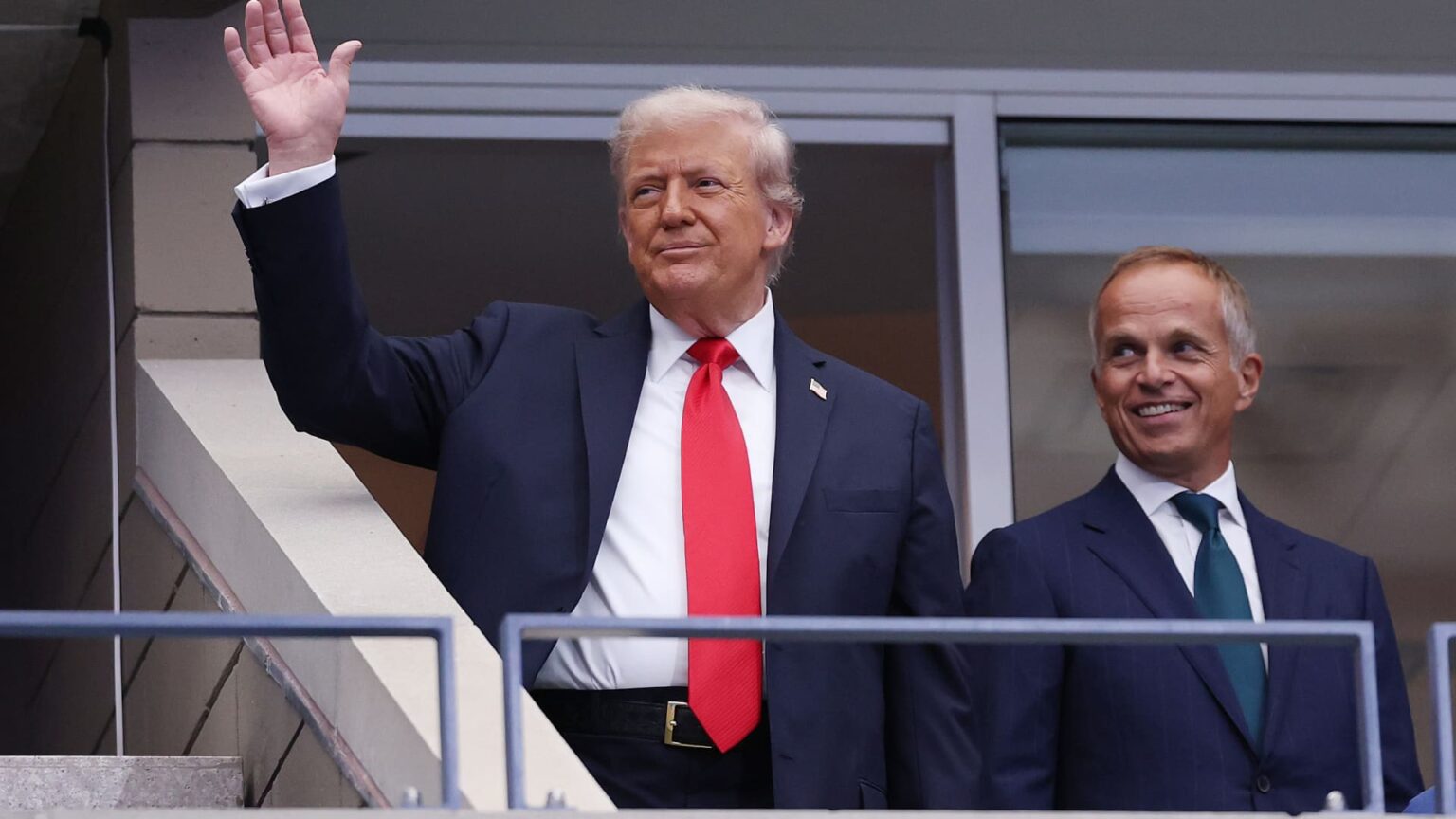In a recent turn of events at the U.S. Open, Senator Elizabeth Warren has criticized Rolex for inviting former President Donald Trump to the prestigious tennis tournament. Warren’s letter to Jean-Frederic Dufour, Rolex’s CEO, raises concerns about possible intentions to evade tariffs imposed by the United States on Swiss products. This incident underscores the ongoing tension between corporate influence and governmental policy, as tensions over international trade continue to shape corporate strategies.
| Article Subheadings |
|---|
| 1) Context of the U.S. Open Invitation |
| 2) Senator Warren’s Deliberations |
| 3) Trump’s Tariff Policy and Its Impact |
| 4) The Response from Rolex and Other Companies |
| 5) Broader Implications for Corporate Politics |
Context of the U.S. Open Invitation
During the men’s singles championship match at the renowned USTA Billie Jean King National Tennis Center, President Donald Trump was spotted with Rolex CEO Jean-Frederic Dufour. This event not only highlights Trump’s continued presence in high-profile gatherings but also raises questions about the intersection of sports, business, and politics. The invitation to such a significant corporate leader reflects the ongoing relationship between high-ranking officials and influential businesses. The optics of Trump attending a major sporting event alongside top executives have gained critical attention, as it plays into broader narratives about favoritism and business relationships that may influence public policy.
Senator Warren’s Deliberations
On Wednesday, Senator Elizabeth Warren took action by sending a critical letter to Rolex, questioning the implications of Trump’s presence at the U.S. Open. Warren’s letter suggested that Rolex might be attempting to cultivate a favorable relationship with the Trump administration, potentially seeking tariff exemptions for its products. This insinuation, emphasizing the unethical nature of such corporate maneuvers, aligns with Warren’s ongoing scrutiny of corporate lobbying and influence in politics. Warren specifically noted that the incident mirrors strategies used by tech giants like Apple and Nvidia, which have recently announced major investments in the United States amidst ongoing tariff negotiations.
Trump’s Tariff Policy and Its Impact
In August, President Trump had announced a new tariff policy, imposing a hefty 39% levy on Swiss exports, which was notably higher than the rates imposed on other countries like the European Union and the United Kingdom. This policy has raised concerns among Swiss watchmakers, an industry that has long been a cornerstone of Switzerland’s economy. Analysts, including Luca Solca from Bernstein, have suggested that these tariffs may compel Swiss watchmakers to increase their prices significantly, disrupting the competitive landscape of the luxury watch market. The impact of such tariffs also extends into broader discussions on international trade, affecting not only economic conditions but also diplomatic relations.
The Response from Rolex and Other Companies
As the fallout from Warren’s letter continues, the responses from implicated companies like Rolex, NVIDIA, and Apple have been notably muted. While these companies have yet to issue formal statements addressing the senator’s concerns, they remain under scrutiny from various stakeholders. The lack of immediate comment from these corporate giants adds to the narrative of detached corporate governance and the complexities of political contributions. Additionally, fellow Swiss watchmaker Swatch has taken a different approach in response to the tariffs by launching a special-edition watch, cheekily designed to reflect the 39% tariffs by swapping the positions of the numbers three and nine. This creative move suggests a potential backlash against the tariffs, though Swatch has also signaled that it would cease sales of the item if U.S. trade policies changed.
Broader Implications for Corporate Politics
The interplay between corporations and political figures is a complex and often contentious subject. Warren’s letter serves as a reminder of the ethical implications surrounding corporate strategies that may appear to cozy up to political power for advantageous returns. Companies are increasingly scrutinized not only for their products and services but also for their political affiliations and the potential for perceived conflicts of interest. The ongoing to-and-fro between politicians like Warren and corporate executives underscores how deeply intertwined commerce and governance have become in recent years. As businesses navigate these relationships, the potential for regulatory changes and public backlash looms large, ultimately encouraging a reevaluation of how corporations engage with politics.
| No. | Key Points |
|---|---|
| 1 | Senator Elizabeth Warren criticized Rolex for inviting Trump, alleging possible tariff circumvention. |
| 2 | Warren’s concerns stem from a perceived relationship between Trump and corporations, including Apple and Nvidia. |
| 3 | Trump’s tariffs may significantly affect Swiss watchmakers, prompting potential price increases. |
| 4 | Rolex and other companies have not yet publicly commented on the situation. |
| 5 | This incident highlights the ethical complexities of corporate-political relationships and public perceptions. |
Summary
The unfolding events surrounding Senator Elizabeth Warren’s criticisms of Rolex for hosting Donald Trump at the U.S. Open exemplify the fraught relationship between business and politics. The situation underscores critical questions regarding corporate ethics and the implications of political influence on international trade policies. As the narrative continues to develop, both the public and corporate sectors must wrestle with the consequences of these interactions, setting the stage for further discussions on transparency and accountability in the future.
Frequently Asked Questions
Question: What are the primary concerns regarding Trump’s tariff policy on Swiss watchmakers?
Concerns surrounding Trump’s tariff policy include potential price hikes for Swiss products, which could affect market competitiveness and consumer prices.
Question: What actions did Senator Warren take in response to Rolex’s invitation to Trump?
Senator Warren sent a critical letter to Rolex’s CEO, questioning the implications of Trump’s presence at the U.S. Open and suggesting potential favoritism for tariff exemptions.
Question: How has Rolex responded to the criticisms from Senator Warren?
As of now, Rolex, along with other companies mentioned, has not provided a public comment regarding the situation, leaving many questions unanswered.


